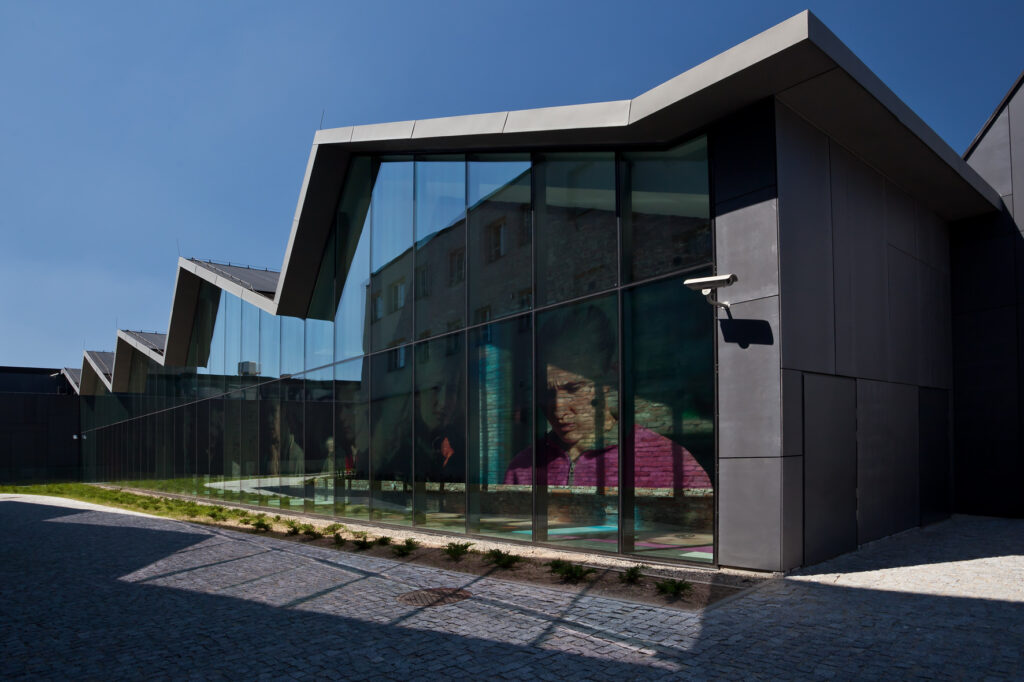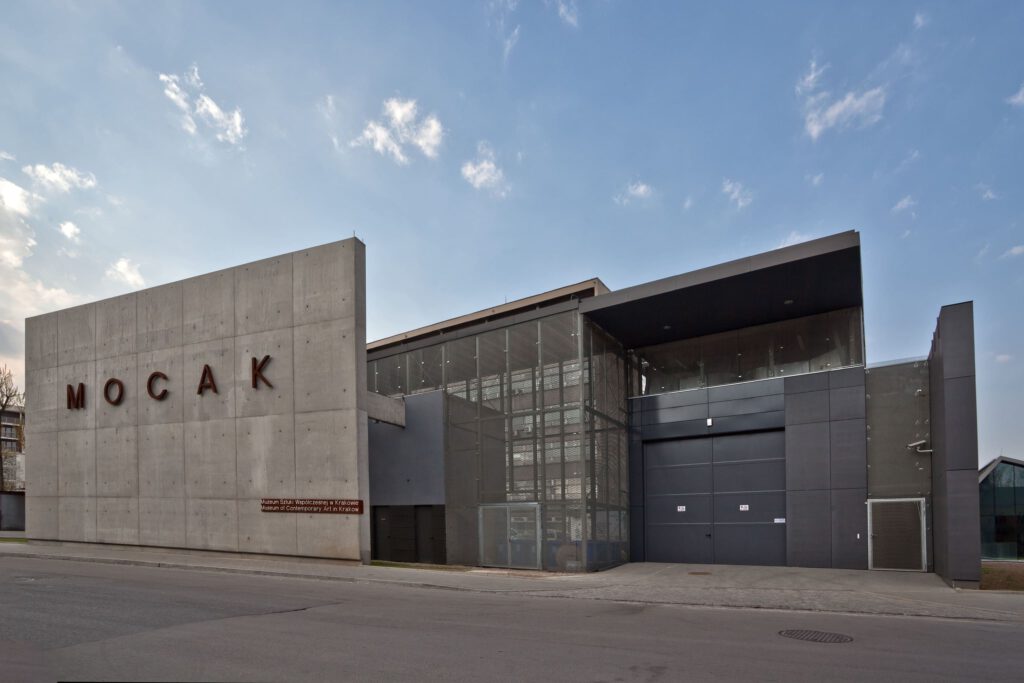The program of MOCAK, which has been active since February 1, 2010, encompasses the presentation of the latest international art, education, and research and publication projects. MOCAK’s two most important aims are the presentation of the art of the two last decades in the context of the post-war avant-garde and conceptual art, as well as clarifying the rationale of creating art by highlighting its cognitive and ethical value and its relationship with everyday reality.
All the projects undertaken by the museum are aimed at a diverse audience. The publications produced provide insight into the origin and significance of the works and events presented and place them in relevant contexts. The institution considers it an important challenge to reduce prejudice against very recent art.


The Holocaust is an important focus of MOCAK’s program. The museum’s location on the site of Oskar Schindler’s former enamel factory, as well as its closeness to the former Kraków ghetto and the concentration camp in Płaszów, together with its relative proximity to Auschwitz, mean that this is a place that has been powerfully marked by history. For this reason, MOCAK has consistently endeavored to bring this context into the public consciousness through its program of exhibitions, publications, and films and the presentation of relevant works from its collection.
Our first book that took on the challenge of a contemporary approach to the problem of the Holocaust was Wilhelm Brasse, Number 3444: Photographer, Auschwitz 1940–1945, an account by an internee who was the chief photographer in the Auschwitz concentration camp. It was the first of our series of publications related to the Holocaust, all accompanied by a film recording of statements by survivors. The pivotal moment for our exhibition profile came with the international exhibition History in Art (curator: Maria Anna Potocka), which kicked off the museum’s activity (May 20 – October 16, 2011) and featured the drama of World War II as a leitmotif.
In 2014, MOCAK embarked on a collaboration with the Center for Persecuted Arts in Solingen, which came to fruition with numerous joint projects. The first and most important of these was the exhibition Poland – Israel – Germany: The Experience of Auschwitz (curators: Delfina Jałowik and Jürgen Kaumkötter), presented in both institutions (Kraków: May 15 – October 31, 2015; Solingen: December 9, 2015 – January 24, 2016). The exhibition was accompanied by two MOCAK publications. The first, with the same title, described works by twenty-one participating contemporary artists, who employed varying approaches to perceiving Auschwitz as a site of the Holocaust from the perspective of the three nationalities. The second publication was a Polish edition of the book Death Does Not Have the Last Word by Jürgen Kaumkötter, the curator in Solingen, about artists who created works in ghettos and concentration camps during World War II. The Polish edition of Michel Kichka’s graphic novel Second Generation was also inspired, albeit less directly, by the exhibition.
The following presentations abroad organized in collaboration with MOCAK also referred to the Holocaust: Jonasz Stern’s Landscape after the Holocaust at the Center for Persecuted Arts in Solingen (curator: Maria Anna Potocka, August 5 – September 25, 2016); Second Generation: Graphic Novel by Michel Kichka at the Kunstmuseum in Gelsenkirchen (curators: Delfina Jałowik, Jürgen Kaumkötter, January 30 – April 2, 2017); as well as the exhibition dedicated to Zofia Posmysz, an Auschwitz prisoner and writer: Auschwitz and Literature at the Musiktheater im Revier in Gelsenkirchen (curator: Maria Anna Potocka, January 27 – April 2, 2017), Images of the Holocaust in Literature: “The Passenger” by Zofia Posmysz at the Center for Persecuted Arts in Solingen (curator: Magdalena Mazik, January 28, – February 26, 2017) and The Passenger in the Semperoper in Dresden (curator: Maria Anna Potocka, April 18 – July 9, 2017). MOCAK presented a unique exhibition titled Lagertheater about theater in PoW and concentration camps (curators: Magdalena Kulesza, Katarzyna Wodarska-Ogidel, October 20, 2017 – January 28, 2018) and also the first exhibition in Poland dedicated to the US-American artist Boris Lurie: Pop-Art After the Holocaust (October 26, 2018 – February 3, 2019).
